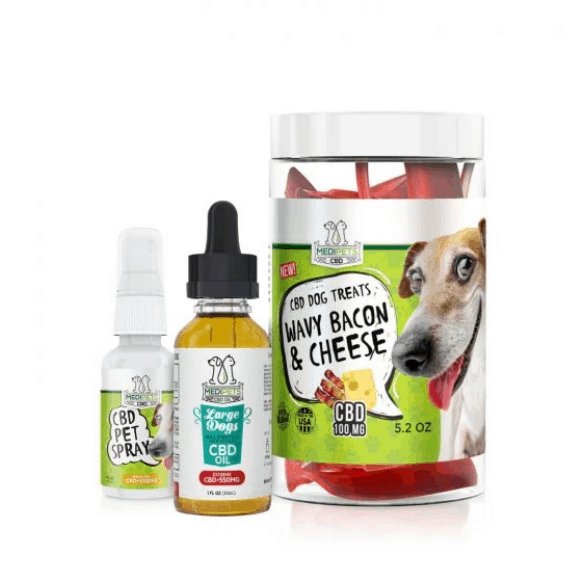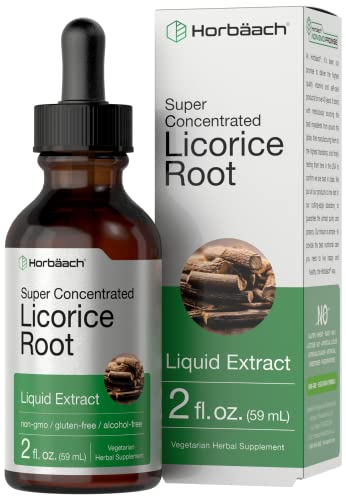Are you looking for a natural anti-inflammatory for your dog? If so, you’re in luck. There are many different herbs and supplements that can help reduce inflammation in dogs. Below, we’ll share some of the best options to consider. Keep reading to learn more.
Best Natural Anti-Inflammatory for Dogs
Best Natural Anti-Inflammatory for Dogs
Glucosamine
Glucosamine (Buy Online) is a natural compound that has been shown to help ease discomfort in dogs suffering from inflammation. If your dog is experiencing joint pain, you may want to consider giving them glucosamine supplements to see if it helps improve their condition. As always talk to your veterinarian about the best dosage for your pet and how long you should continue supplementing their diet with glucosamine.
Essential Fatty Acids
If your dog is struggling with inflammation, you may want to consider supplementing their diet with essential fatty acids. Omega-3 fatty acids have been shown to help reduce inflammation in pets, and giving your dog a good quality Omega-3 Dog Treat (Buy Online) or adding fish oil to their food could make a big difference. Talk to your veterinarian about what dosage would be best for your pet, and you’ll start seeing the benefits of better inflammation control in a few weeks.
CBD

CBD (Buy Online) is a great option for pain relief and swelling in dogs. It is natural and non-toxic, and it can be given orally or applied topically. CBD oil has been shown to be effective against inflammation, pain, and anxiety, making it a great choice for dogs who are suffering from any of these issues.
CBD is a natural anti-inflammatory and analgesic that can be used to help relieve pain and swelling in dogs. It is made from the hemp plant which is not psychoactive and it won’t cause any changes in a dog’s personality or activity level.
CBD Treats (Buy Online) have been shown to be effective in relieving pain and inflammation associated with a wide range of health conditions in humans, including arthritis, chronic pain, diabetes, cancer, and multiple sclerosis. It is also effective in treating pets for similar conditions. For example, CBD has been found to help relieve pain and inflammation associated with hip dysplasia and other joint problems in dogs.
Hemp Seed Oil
Hemp Seed Oil (Buy Online) is a great option for dogs experiencing pain and swelling. Hemp Seed Oil has anti-inflammatory properties that can help to reduce inflammation and pain. Additionally, Hemp Seed Oil is a rich source of omega-3 fatty acids, which are beneficial for reducing inflammation.
What is Inflammation?
Inflammation is the body’s natural response to injury or illness. When the body is injured, cells release cytokines, which are proteins that signal the immune system to come and help. The immune system then sends in white blood cells to clean up the area and start the healing process.
Sometimes inflammation can get out of control, and it can become chronic. This can lead to a whole host of problems, such as heart disease, arthritis, and diabetes. There are several things you can do to help your dog keep inflammation under control, such as feeding them an anti-inflammatory diet and keeping them physically active.
Anti Inflammatory Diet for Dogs
An anti-inflammatory diet can be beneficial in many ways. It can help improve joint health, digestion, and skin health, among other things. If you are considering switching your dog to an anti-inflammatory diet, it’s important to do your research so you can find the right foods to feed your pet.
There are many different anti-inflammatory foods available, and not all of them will be appropriate for every dog. Talk to your veterinarian about what might be best for your dog and make sure to introduce any changes gradually so that he has time to adjust.
How To Transition Your Dog To An Anti-Inflammatory Diet
When making the switch to an anti-inflammatory diet for your dog, it is important that you do so gradually. This will help minimize any digestive problems and allow your pup to get used to the new food.
Start by mixing a small amount of the new food in with their old diet, and slowly increase the proportion of anti-inflammatory foods over time until they are eating only the new diet. It may take a little longer than if you were to make a sudden change, but it will be worth it in terms of keeping your dog healthy and happy.
Tips for switching your dog on to an anti-inflammatory diet:
- Remove processed foods, grains, and dairy from their diet
- Replace with fresh fruits and vegetables, lean meats, and fish
- Monitor their weight and adjust food portions as needed
- Make sure they get plenty of exercise
- Reward them with healthy treats sparingly
Foods That Cause Inflammation
Many foods can cause inflammation in dogs, and it’s important to be aware of which ones to avoid. Some of the most common offenders include processed foods, grains, dairy products, and artificial additives. If your dog is suffering from any kind of inflammatory condition, eliminating these foods from their diet may help improve their health.
- Processed Meat
- Hard Cheese (Cheddar, Swiss, etc)
- Eggs
- Refined grain (white flour and white rice)
- Potatoes
- Vegetable oils (corn oil, sunflower oil, peanut oil, canola oil, and soybean oil)
- Hydrogenated Oils
What Can You Give a Dog for Pain and Swelling – Natural Anti Inflammatory Foods for Dogs
Turmeric for Dogs
Turmeric (Buy Online) is a great natural pain reliever and anti-inflammatory. Dogs that are in pain or have swelling can benefit from taking turmeric supplements or simply having turmeric added to their food.
Curcumin (Buy Online), the active ingredient in turmeric, has anti-inflammatory and analgesic properties. It can help reduce inflammation and swelling as well as pain, and curcumin has even been shown in studies on humans to be just as effective as traditional anti-inflammatory medications.
You can either give a dog turmeric in capsule form or you can add it to their food. If you choose to add it to their food, make sure it is ground up well so they can digest it properly.
Spirulina for Dogs
Spirulina (Buy Online) is a blue-green algae that contains high levels of protein, vitamins, minerals, and antioxidants. It can help reduce inflammation and boost the immune system. Spirulina can be given to dogs in tablet or powder form. For best results, you can mix spirulina powder in your dog’s food, or you can give them a few tablets of spirulina per day, depending on the size of the tablet. Talk with your veterinarian before giving your dog any kind of supplement.
Comfrey for Dogs
Comfrey (Buy Online) is a plant that has been used for centuries to reduce swelling and pain. It works by speeding up the healing process of tissues. The leaves and roots of the comfrey plant can be used to make a poultice, which can be applied directly to the affected area.
You can also give your dog comfrey in tablet or extract form. If you choose to give your dog comfrey in tablet or extract form, always consult with your veterinarian first to make sure it is safe for your dog. Additionally, be sure to discontinue use if any adverse reactions occur.
Arnica (Arnica Montana)
You can give a dog Arnica montana (Buy Online), which is an herb that helps to reduce pain and swelling. You can purchase Arnica montana in topical form online. All you need to do is simply apply the cream or ointment to the affected area as directed to reduce pain, inflammation, and redness. As always be sure to speak with your veterinarian before giving your dog any type of medication, including over-the-counter remedies.
Ginger for Dogs
Ginger (Buy Online) is a natural anti-inflammatory and analgesic, and it also has antibacterial properties. It’s a great choice for treating pain and inflammation in dogs. You can give your dog ginger in several ways: fresh ginger root dried ginger powder or ginger essential oil. For fresh ginger, you can grate it or chop it into small pieces and add it to your dog’s food. For dried ginger powder, you can add it to your dog’s food or mix it with water to create a paste that you can apply topically. For ginger essential oil, you can add a few drops to your dog’s food or water, or massage it into the skin.
Boswellia serrata
Boswellia serrata (Buy Online) is a natural herb that has been used for centuries in Ayurveda, the traditional Indian system of medicine, for the treatment of inflammatory conditions.
Boswellia specifically inhibits the enzyme 5-lipoxygenase, which is responsible for the production of inflammatory cytokines. These molecules are mediators of inflammation and they play a pivotal role in both pain and swelling. By inhibiting 5-lipoxygenase, Boswellia can help to dampen an overactive immune response and reduce inflammation and pain.
Devil’s Claw Root
One herbal remedy that is often used for treating pain and inflammation in dogs is Devil’s Claw Root (Buy Online). This herb contains the compound harpagoside, which is effective at reducing inflammation. Another benefit of devil’s claw root is that it also helps to promote liver health, which is important because the liver plays a key role in detoxifying the body.
Hawthorn
Hawthorn (Buy Online) is a great herb for dogs with pain and swelling. It helps to strengthen collagen and increase blood flow, which can help to reduce inflammation and promote healing. However, just be aware that Hawthorn can cause adverse side effects when given with certain heart medications.
Yucca
Yucca (Buy Online) is a plant that has been used by Native Americans for centuries to treat pain and inflammation. Recent studies have shown that yucca contains saponins which are converted into corticosteroids, which are the body’s natural anti-inflammatory agents.
For pain and swelling, you can give your dog yucca in the form of supplements or extracts. There are also topical products that contain yucca that can be applied directly to the affected area. Talk to your veterinarian before starting your dog on any supplement or extract, as there even can be side effects associated with natural anti-inflammatory supplements.
Licorice for Dogs
Licorice (Buy Online) has anti-inflammatory and pain-relieving properties, and it also helps with swelling. The glycyrrhizin in licorice is especially beneficial since it has a similar chemical structure as the body’s own corticosteroids that inhibit the production of inflammatory molecules. This makes licorice a great choice for dogs who are experiencing pain and inflammation from conditions like arthritis, hip dysplasia, or ligament tears.
Cinnamon
Cinnamon (Buy Online) has anti-inflammatory properties, which can help to reduce swelling and ease pain. Additionally, cinnamon is a natural antioxidant, which can help to protect tissue from damage.
Alfalfa for Dogs
Alfalfa (Buy Online) is a plant that is high in antioxidants and has anti-inflammatory properties. It can help to reduce pain and swelling in your dog. You can give your dog alfalfa in the form of a tincture, tablet, or powder. Speak to your veterinarian before giving your dog any supplements, especially if he is taking other medications.
Meadowsweet for Dogs
Meadowsweet (Buy Online) has anti-inflammatory properties and the Salicylates found in meadowsweet and white willow, are similar to aspirin and can help to reduce pain and inflammation. You can give your dog a tincture of meadowsweet or white willow, or put meadowsweet or white willow in their food.
Horsetail for Dogs
Horsetail (Buy Online) is an herb that has anti-inflammatory and analgesic properties. Holistic treatments such as acupuncture, chiropractic care, and massage can also help treat pain and swelling when used in conjunction with Horsetail.
Cayenne for Dogs
Cayenne (Buy Online) contains capsaicin, which is a natural pain reliever. You can either add a small amount of cayenne pepper to your dog’s food or water, or you can apply a topical cream that contains capsaicin directly to the area that is swollen or painful.
Green Lipped Mussel for Dogs
Green-lipped mussel (Buy Online) is a shelfish that is a rich source of omega 3 fatty acids, which have powerful anti-inflammatory properties. In addition, the omega 3s in Green Lipped mussels also help to reduce pain and swelling. You can give your dog green-lipped mussel as a supplement or in capsule form, or you can give them fish oil supplements that contain high levels of omega 3s.
Related: Best Dog Joint Care Supplements
Additional Natural Pain and Inflammation Relief for Dogs
Massage Therapy
Massage therapy is a great alternative pain and inflammation relief option for dogs. It can help to increase blood circulation, reduce swelling and inflammation, and help relieve muscle tension and pain.
Many different massage techniques can be used for dogs, including Swedish massage, deep tissue massage, reflexology, and aromatherapy massage. If you’re interested in trying massage therapy as an alternative pain relief option for your dog, it’s best to consult with a qualified therapist who has experience working with animals.
Acupuncture
Another option for pain and inflammation relief for dogs is acupuncture. Acupuncture involves the insertion of very thin needles into specific points on the body. It has been used to treat a variety of conditions in humans for centuries and is now being used increasingly to treat animals as well.
There is some evidence that acupuncture may help relieve pain and inflammation, but more research is needed to determine the effectiveness of this pain management technique. Still, many pet owners find that acupuncture helps their dog feel better and can be a valuable addition to traditional therapies.
Weight Loss
There are a few different alternative pain and inflammation relief options for dogs. One that won’t cost you anything is weight loss. excess weight can put stress on joints, leading to inflammation and pain. A dog who is overweight or obese will likely feel better and experience less pain once they lose some weight.
There are many healthy weight loss options for dogs, and you should talk to your veterinarian about the best way to help your furry friend shed some pounds.
Exercise
Exercise is a great way to help relieve pain and inflammation in dogs. It helps keep the joints moving, which can reduce stiffness, and it also modulates an overactive immune system, which can help reduce inflammation.
Be sure to consult with your veterinarian before starting your dog on an exercise regime, and start slowly to make sure your dog doesn’t hurt their joints.
Many different types of exercises are appropriate for dogs, depending on their age, health, and physical condition. Some good exercises for dogs include walking, jogging, swimming, playing fetch or tug-of-war, and going for hikes. Just be sure to keep things interesting by varying the activities from day to day so your dog doesn’t get bored.
Dangers of Over The Counter Anti-Inflammatory Medications for Dogs
The dangers of conventional anti-inflammatory medications for dogs are many and include adverse reactions such as stomach ulcers, heart problems, and even death. If you think your dog needs medication to treat inflammation, be sure to talk to your veterinarian about the safest options that don’t come with all these risks.
Conclusion
Dogs are prone to inflammation for many reasons, just as people are. The good news is that there are natural anti-inflammatories available for dogs that can help reduce inflammation and improve the dog’s quality of life. If your dog is suffering from inflammation, please talk to your veterinarian about trying a natural anti-inflammatory before resorting to prescription medications.


























